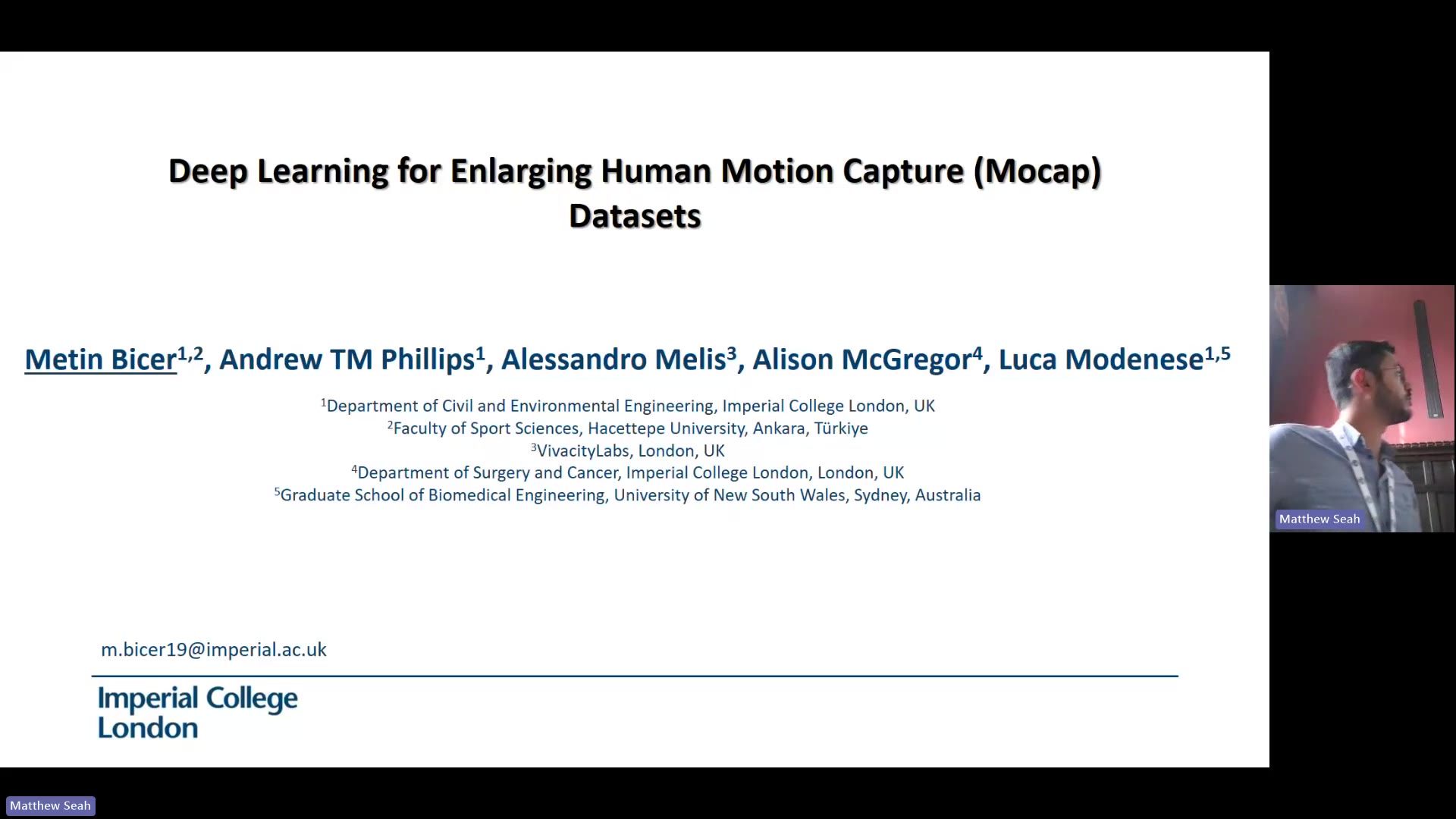Please login to view this media

- Talk
- 20/09/2023
- UK
Deep Learning for Enlarging Human Motion Capture (Mocap) Datasets
Description
In this presentation, Metin Bicer, a PhD student from Imperial College, discusses the application of artificial intelligence in human motion capture, specifically focusing on the development of predictive models using synthetic data. Metin explains the challenges faced due to limited datasets for machine learning and describes how they implemented a spatial deep learning algorithm called generative adversarial networks (GANs) to create synthetic mockup datasets. These datasets include marker trajectories, ground reaction forces, and joint angles and are used to enhance the performance of deep learning models for individualized predictions.
Metin highlights their approach to increase data diversity beyond traditional experimental trials by controlling various factors such as walking speed, age, gender, and subject mass during the data generation process. He elaborates on the structure of their conditional GAN, which consists of three sub-networks: an encoder that transforms experimental trials into a latent representation, a decoder that reconstructs trials from this representation, and a discriminator that distinguishes between real and synthetic data.
Through proper training, the decoder generates synthetic trials based on random vectors and specified conditions, leading to the creation of a multi-conditional model. This model proved effective, as it generated synthetic data that closely matched the experimental data in kinematics and kinetics. Metin discusses the results, showing that the multi-conditional model outperformed single-condition models by capturing a wider range of variability in the data.
Additionally, he mentions the potential of this method to facilitate data sharing without ethical concerns, as synthetic data does not involve real subjects. While acknowledging some limitations, such as the need to extend the approach to full-body analysis and different movement types, Metin concludes by inviting the audience to explore their web application for generating synthetic data.